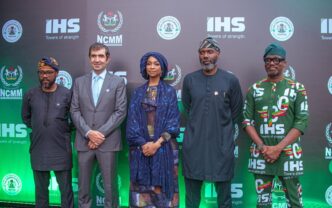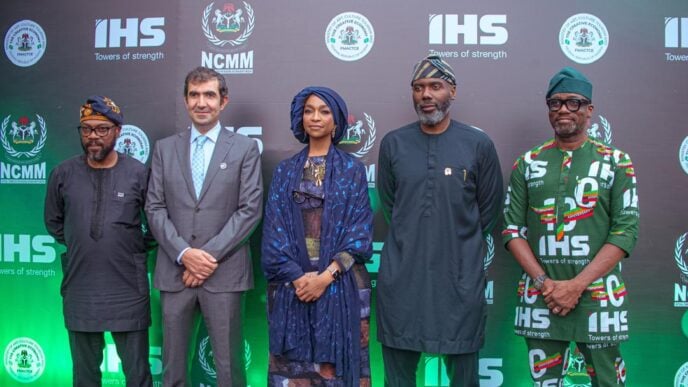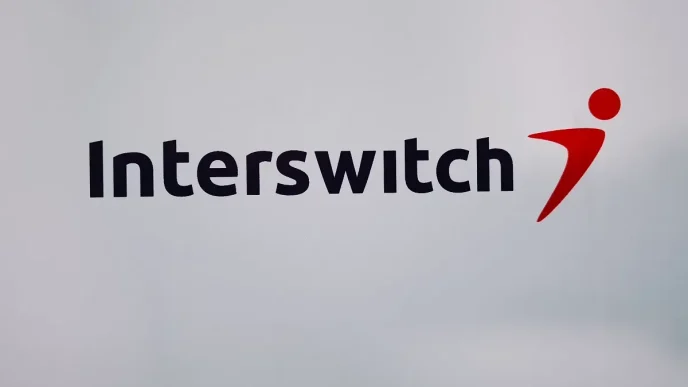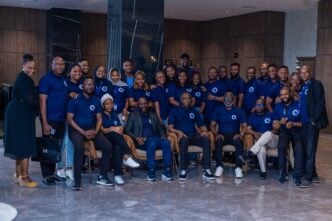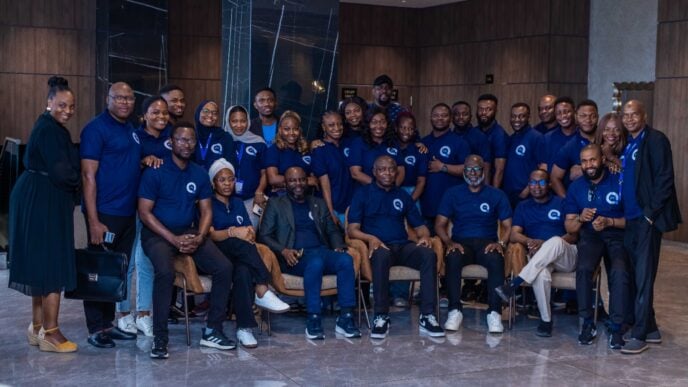BY ABIGAIL OGWEZZY-NDISIKA
The nine local government areas of Delta North district that make up the proposed Anioma State
The renewed advocacy for the creation of Anioma State has ignited robust discussions concerning linguistic affinity, geopolitical alignment, and broader socio-economic and political considerations. In this context, Abigail Ogwezzy-Ndisika, an Ukwuani dialect speaker, linguist, development expert, and communication scholar, offers a compelling perspective supporting the Anioma State movement.
She argues that this movement is a historic and transformative idea, deeply anchored in language, heritage, and the pursuit of progress. It is a convergence of language and legacy, charting a forward-looking course for the Anioma people and the nation as a whole. Anioma’s rightful place within Nigeria’s federation transcends traditional “borders” and embodies the principle of unity in diversity.
Embrace the Moment: Why Anioma State is Essential
Nigeria’s journey as a nation has always been about the transformative power of ideas – ideas that reshape boundaries, empower communities, and ignite progress. Today, the call for Anioma State presents such an idea: fresh, rooted in history, forged by linguistic and cultural unity, and poised to carve out a bright new chapter for the people of Anioma and Nigeria at large.
The vision for Anioma State is a movement for recognition, development, and justice. For those concerned or opposed to Anioma aligning with the South-east geopolitical zone, it is vital to address these apprehensions with historical context, linguistic facts, and a pragmatic, future-focused lens. This case leverages rich academic insight and evidence to assure all stakeholders that placing Anioma in the South-east not only honours historical and linguistic realities but also empowers the Anioma people and Nigeria as a whole.
Historical Imperative: Decades of Aspiration
The push for Anioma State is not a fleeting whim; it is deeply entrenched in decades of aspiration and collective efforts by the Anioma people. Tracing back through historical documents, the Anioma people have long desired a state that encapsulates their unique identity, geographically nestled in Delta North yet culturally resonant with their Igbo kin across the River Niger.
Evidence on the historical trajectory of Anioma statehood shows that since Nigeria’s independence, the Anioma people, a distinct group in Delta North, have persistently called for a state that aligns with their identity, aspirations, and needs. The advocacy for Anioma State did not emerge in a vacuum. From early petitions to regional assemblies, through communal advocacy and political mobilisation, these efforts reveal a people united in purpose and persistent in the pursuit of autonomy, self-governance, and equitable resource management.
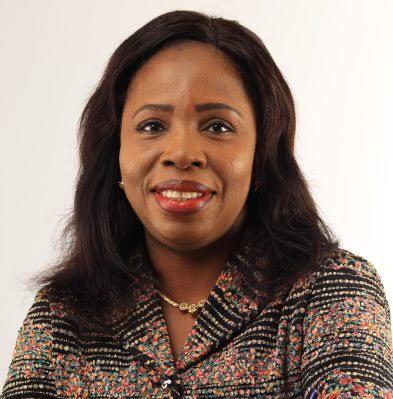
These petitions, policy engagements, and community organising all demonstrate that the case for Anioma State is deeply rooted in the people’s collective experience and their quest for recognition, equitable resource distribution, and effective self-governance. The creation of Anioma State is not just about political boundaries; it is about affirming the dignity, heritage, and aspirations of millions who feel a natural belonging that current state structures do not fully acknowledge.
Linguistic Affinity: An Undeniable Connection
Distinguished scholars such as Joseph Greenberg, Kay Williamson, and John Bendor-Samuel have laid the groundwork in African linguistics, identifying profound connections among Nigeria’s ethno-linguistic groups. Their research highlights the strong linguistic affinity between Anioma dialects and Igbo languages, proving beyond doubt that the Anioma people are part of the greater Igbo ethno-linguistic family.
This academic consensus firmly places the Anioma people within the Igboid language group, driven by robust lexico-statistical analysis. Williamson’s survey of the Igboid languages reveals significant lexical similarity, supporting a close genetic relationship among these languages. Her analysis identifies shared core vocabulary items and cognates, which underscore the linguistic unity of the Anioma dialects within the Igboid family. This evidence strengthens the argument that Anioma should be recognised politically in alignment with their linguistic and cultural heritage. Specifically, Williamson stated that the lexicostatistic percentages of the Igboid lects are: Ikwerre (72%), Ogbah (77%), Igbo (79%), Ukwuani (73%), and Ekpeye (65%). These lects are closely related, with Ekpeye being the most distantly related.
Furthermore, Greenberg’s foundational research situates Anioma dialects within the Volta-Niger subgroup of the Niger-Congo family, alongside Igbo, confirming deep historical and linguistic ties. Bendor-Samuel’s extensive fieldwork further authenticated these ties, underscoring shared lexical, phonological, and syntactic features. This linguistic unity transcends administrative borders and speaks to a cultural identity that is organic, enduring, and deserving of political recognition through a distinct Anioma State.
It demonstrates that Anioma’s linguistic characteristics are not an administrative accident, but a birthright. Ipso facto, the South-east is defined not only by geography but by cultural and linguistic brotherhood, which Anioma naturally shares. Hence, it is essential to understand that advocating for the exclusion of Anioma from the South-east because some dialects claim not to have affinity with Igbo would ignore scholarly consensus and lived heritage.
Acknowledging historical and linguistic realities builds trust in the Nigerian system and fosters stronger national unity.
The advantage of shared heritage cannot be quantified as Anioma is largely inhabited by Igbo-speaking people who share cultural, linguistic, and historical ties with the South-east. Joining the South-east would reunite them with their kin, fostering cultural cohesion.
Geopolitical Flexibility: A Vision for Nigeria’s Future
Senator representing Delta North Senatorial District (Anioma), Prince Ned Munir Nwoko, the immediate past Asagba of Asaba, Professor Joseph Chike Edozien and Regina Daniels Nwoko (Photo credit princenednwoko Instagram)
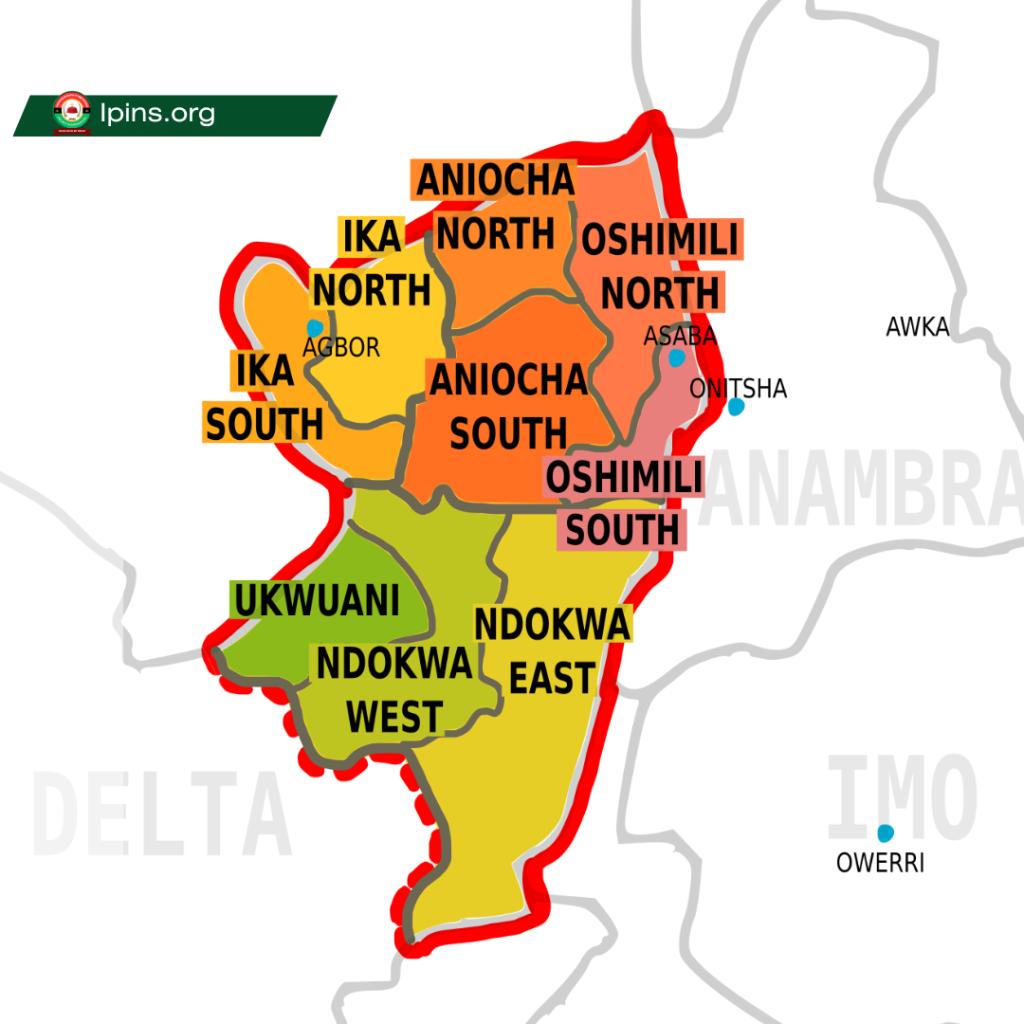
The opposition to Anioma joining the South-east is often rooted in concerns about political categorization. Yet, Nigeria’s geopolitical zones have historically been fluid. During the colonial era, we had Northern and Southern Protectorates; the First Republic saw North, East, and West Regions; post-independence witnessed the addition of the Mid-west Region; and today, we have six zones (North-central, North-east, North-west, South-east, South-south, and South-west).
This history illustrates that geopolitical zones are not immutable; they evolve alongside Nigeria’s realities and can and will change as national conversations progress. As such, Anioma’s present alignment should be seen as a bridge to the future, not a permanent division. Geographic assignment should therefore not supersede the Anioma people’s right to seize a historic opportunity for statehood.
In fact, Anioma’s acceptance of whichever geopolitical zone it will be allotted is an act of political maturity and strategic foresight, as history teaches us that geopolitical zones can and will be reconfigured as Nigeria grows and develops. Therefore, Anioma should seize this moment of state creation without resistance or parochial disquietude about geopolitical categorization. The statehood journey transcends zones; it is about securing recognition, governance autonomy, and unlocking development potential. Focusing on zone disputes could mean “throwing away the baby with the bathwater”; instead, this is the moment to prioritize progress over boundaries.
The Case for Creation: Economic, Social, and Political Imperatives
Beyond history and linguistics, an Anioma State promises to unlock sustainable development. The people of Anioma possess unique economic resources, cultural heritage, and human capital that remain under-utilized under broad jurisdictional administration. Statehood would unlock these assets via local governance and investment. A dedicated state government would enable tailor-made policies, infrastructure development, education focused on local needs, and foster investment opportunities. Politically, statehood offers a platform where Anioma voices carry full weight in Nigeria’s federal system, enhancing representation and participation. This is not about fragmentation but about federalism at its best, allowing diverse peoples to steer their destinies within an indivisible Nigeria. This would enhance the economic viability of the region by allowing the Anioma people to directly manage and benefit from their resources and potentials leveraging on the rich mineral endowments of the district which apart from being oil producing harbours the largest deposit of gas in West Africa.
In summary, the agitation for the creation of Anioma State (from the present-day Delta North Senatorial District of Delta State) and placing it in the South-east geo-politicalzone has been discussed for decades, often in the context of political balancing, cultural identity, and economic development.
Grouping Anioma State within the South-east geo-political zone comes with multiple advantages including political balancing and equity by bridging the “state deficit” in the South-east. The zone currently has only five states, while other zones have six or seven. Creating Anioma State will give the zone six states, putting it at par with others and strengthening its influence at the federal level.
Secondly, creating Anioma will usher enhanced representation in the National Assembly.A new state would add new senators and representatives from Anioma, increasing the South-east’s legislative weight. Anioma State will equally usher greater bargaining power in federal politicsbecause with more political voices from the South-east, the zone could negotiate better on national issues, appointments, and resource allocation.

Many Anioma people see their current placement in Delta State (part of the South-south) as a colonial-era boundary decision that split them from the core South-east. Realignment could correct this perceived historical anomaly via the birth of Anioma State.
Furthermore, being in the South-east could mean closer integration with Igbo economic networks, including Onitsha, Nnewi, Aba, and Enugu, Owerri, Awka, Aba boosting trade and transport links.
Other social and identity benefits include the fact that Anioma people’s traditions, festivals, and heritage could get more visibility and policy support within a state aligned with their cultural roots just as Anioma could have a stronger voice in Igbo socio-cultural groups like Ohanaeze Ndigbo, giving them more say in pan-Igbo matters.
Creation of Anioma State can bring about reduction of inter-ethnic tensions because the new state would escape the current competition for political dominance within the ethnically diverse Delta State and instead operate within a zone where ethnic affinity and harmony are greater.
The creation of Anioma State is therefore not merely a regional call; it is a national imperative. It is a movement woven from historical precedence, linguistic reality, geopolitical pragmatism and visionary development. Again, the siting of Anioma State in the South-east is a step historically, linguistically and democratically justified. To naysayers and critics who see this as division or discord, history’s lesson is clear: no force can halt an idea whose time has truly come. So, it is unstoppable, necessary and unifying for all.
Embracing this transition with calm and strategic resolve will ensure that Anioma, Nigeria and all her people move courageously into a brighter future. The Anioma statehood movement is peaceful, democratic and forward-thinking; and has always favoured peaceful, lawful and inclusive methods, demonstrating readiness for responsible statehood. So, let us not “throw away the baby with the bathwater” by allowing fear or misunderstanding to derail an indigenous people’s quest for progress. Instead, let us embrace this as a moment to demonstrate Nigeria’s strength in unity, diverse yet cohesive; and to foster a hopeful future where every citizen’s identity and aspirations are recognised and celebrated. Let us, therefore, stand firm in peace, harness the power of this idea and ensure that the Anioma people step boldly into their rightful place within Nigeria’s federation. Nobody can stop an idea whose time has come!
Abigail Ogwezzy-Ndisika, an Ukwuani dialect speaker, linguist, development expert and communication scholar, writes from Lagos.
